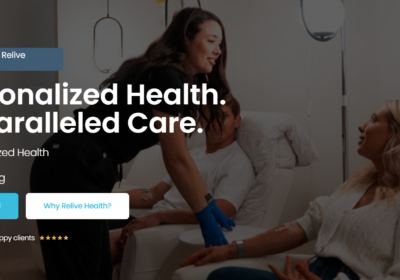
Behavioral Health Equity: Acadia Healthcare’s Commitment Highlighted at the J.P. Morgan Healthcare Conference
Behavioral health equity remains a significant challenge in the United States, with many communities struggling to access critical mental health and addiction services. Acadia Healthcare, a leader in behavioral health, has prioritized addressing this gap through innovative programs and partnerships. During the 43rd Annual J.P. Morgan Healthcare Conference, Acadia Healthcare reinforced its dedication to ensuring equitable access to care for all individuals, particularly those in underserved areas.
A Focus on Accessibility and Inclusion
With a network of more than 258 facilities across 40 states and Puerto Rico, Acadia Healthcare serves over 75,000 patients daily. This expansive reach allows the organization to address diverse needs through inpatient, outpatient, and residential treatment programs. Acadia’s mission, embodied in the motto “Lead Care With Light™,” underscores their commitment to providing compassionate and accessible care for all individuals, regardless of their circumstances.
At the conference, Acadia Healthcare emphasized its efforts to reduce barriers to behavioral health services. This includes expanding facilities in rural areas, partnering with Medicaid programs, and offering care to patients from historically marginalized communities. These initiatives align with Acadia’s vision of creating a more equitable healthcare system.
Supporting Underserved Populations
One of Acadia Healthcare’s standout programs is its focus on providing specialized care for veterans, military personnel, and their families. Through the Service Resiliency Unit (SRU), Acadia connects military members with tailored behavioral health services designed to address trauma, anxiety, depression, and other challenges associated with service. This program not only provides critical support but also addresses the unique cultural and psychological needs of the military community.
Acadia also extends its services to low-income patients through Medicaid partnerships, ensuring that financial challenges do not prevent individuals from accessing care. By working with government programs and insurers, Acadia Healthcare has been able to deliver high-quality treatment to some of the most vulnerable populations.
Expanding Comprehensive Treatment Centers
To address the ongoing opioid crisis, Acadia Healthcare has established a nationwide network of Comprehensive Treatment Centers (CTCs). These facilities provide medication-assisted treatment (MAT) and behavioral counseling to individuals struggling with opioid addiction. Many of these centers are located in areas with limited access to addiction services, offering a lifeline to patients in need.
At the J.P. Morgan Healthcare Conference, Acadia highlighted the success of these centers in improving patient outcomes. With 80% of CTC patients achieving opioid-free status within six months, compared to the national average of 45%, the program serves as a model for addressing addiction in underserved communities.
Leveraging Technology for Equity
Technology plays a vital role in Acadia Healthcare’s approach to improving access. Telehealth services and digital platforms enable patients in remote or rural areas to connect with behavioral health professionals, breaking down geographic barriers to care. Acadia’s investment in advanced technologies, such as electronic medical records (EMRs), further ensures that every patient receives personalized, effective treatment.
A Vision for a More Equitable Future
Acadia Healthcare’s participation in the J.P. Morgan Healthcare Conference reflects its unwavering commitment to behavioral health equity. Through innovative programs, strategic partnerships, and technological advancements, Acadia is addressing disparities in care and ensuring that underserved communities receive the support they deserve.
By prioritizing accessibility and inclusivity, Acadia Healthcare is leading the way in creating a more equitable behavioral health system. Their efforts not only improve individual lives but also strengthen the well-being of entire communities, proving that behavioral health care should be a right, not a privilege.


















